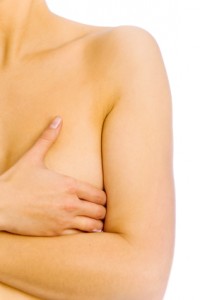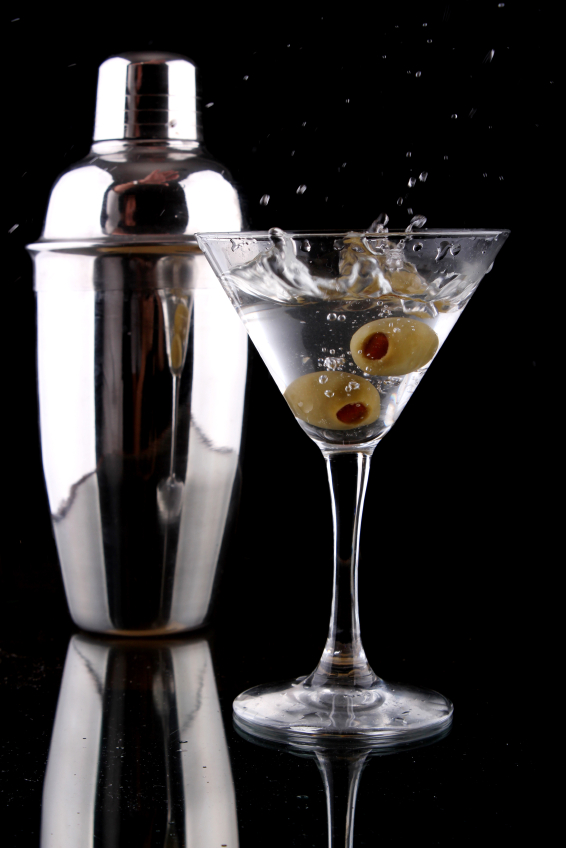Early menopause – is there a silver lining?
Early menopause (menopause before age 40) is often viewed as a kiss of death, especially among women who desire children (or more children) or rightly feel that it’s not yet ‘their time.’ More importantly, early menopause has been linked to a number of serious health conditions, including osteoporosis, heart disease and osteoporosis. But there is good news in the mix: it appears that early menopause may possibly reduce the risk of breast cancer in women under the age of 50. In fact, in a study aptly named the Two Sister Study, researchers compared 1,422 women with breast cancer who were diagnosed before age 50 and 1,669 case ‘sisters’who were free of breast cancer. The women were asked if they had experienced hot flashes, poor sleep, night sweats, irritability or depression and were asked specifically about the age when these symptoms first began. All participants were similar with regard to race, education, childbirth, breastfeeding experiences, cigarette smoking and alcohol intake.
Almost a third of the women who had menopausal symptoms before their they were either diagnosed with breast cancer or before their first interview. These women were likelier to have had a hysterectomy. And 30% who had hot flashes before the average age also reported that they had used hormone replacement therapy. Most importantly, however, women who had menopausal type symptoms before the age of 50 had half the odds of their peers of developing breast cancer, in particular, estrogen-positive breast cancer. This protection tended to decline the older that women became.
What do these findings mean? Undoubtedly it is important to consider factors that could influence the findings, such as age at first menopause or first birth, BMI, use of hormones, drinking and smoking. None of these variables appeared to affect the results. Second, self-reports are sometimes not entirely accurate yet the researchers accounted for this bias in their analysis.
So, today, I am reporting some quite good news. Early menopause can be devastating. But it may confer important protection against breast cancer and that is a very good thing!
Read MoreNewsflash: Estrogen only joins “avoid long-term hormone therapy use” recommendations
How many times does one need to get hit over the head before they have that “ah-ha” moment?
That’s pretty much the party line when it comes to hormone replacement therapy, or HRT. I’ve been writing about HRT since I started this blog. And I have been reading study after study that ultimately come to the same conclusion: long-term use of any hormones is unsafe.
I know that there are naysayers out there who don’t want to believe. Even the International Menopause Society continues to dispute the link between combined hormones and breast cancer. Yet, I wholeheartedly believe in free will and choice, informed decision-making needs to lead the way when it comes to your health.
And so, in the latest wrench to be thrown into the HRT argument, researchers from Brigham and Women’s Hospital in Boston, reporting from the annual American Association for Cancer Research meeting, that the longer that any hormone replacement is used, regardless of whether or not it is estrogen plus progesterone or estrogen alone, the higher the risk for developing breast cancer.
Did you read that?
Lead researcher Wendy Y Chen is quoted in the Association’s newsrelease as saying that while it’s “already been confirmed that patients shouldn’t be undergoing estrogen plus progesteron hormone therapy for the long term,” (you can read about that here), “what we found is that people should also be careful about longer-term use of estrogen-alone [hormone therapy].”
Chen and her team evaluated data collected during the Nurses Health Study over a period of 28 years. They found that of the 121,700 women who took part in the study who were between the ages of 30 and 55 in 1976, and used combined hormones for 10 to 14.9 years, had an 88% higher risk of developing breast cancer than women who did not use HRT. Moreover, this risk increased to more than two-fold in women using it up to almost 20 years. And although the risk was comparatively lower for women who used estrogen only, they still had an 22% increased risk for up to 14.9 years and a 43% increased risk for up to 20 years compared to non-users.
Importantly, when the researchers restricted the population to the same that was observed in the Women’s Health Initiative study (i.e. healthy, active postmenopausal women ages 50 to 79 with an intact uterus), they observed a decline in breast cancer risk among women who used estrogen only therapy for less than five years but continued to observe an increased risk among women currently using estrogen fo 15 to 20 years.
Chen emphasizes that the data do not demonstrate an increased risk for dying from, although they continue to study this particular factor for additional clues.
So, what’s the upshot?
Long-term use of any kind of hormone therapy, estrogen alone or in combination with progesterone, significantly increases the risk for developing breast cancer. Is this increased risk worth a decline in hot flashes, night sweats, mood swings and vaginal dryness? Only you can decide.
Read More
Breast cancer: is your environment placing you at risk?
Last week, the Institute of Medicine (IOM) issued a new report on breast cancer and you will want to take note of their recommendations.
Entitled “Breast Cancer and the Environment, a Life Course Approach,” the goal of the undertaking (which was sponsored by Susan G. Komen fo the Cure) was to examine how a woman’s genes interact with her environment outside of her DNA to increase breast cancer risk. For the purposes of this report, environment was defined broadly to encompass all non-inherited factors, including:
- How a woman might grow/develop throughout her lifetime (including body fat, abdominal fat, weight gain as an adult)
- what she eats and drinks (alcohol consumption, use of supplements)
- Physical, chemical and microbial agents encountered (e.g. dyes, BPA, parabens, tobacco smoke, metals, dioxins, pesticides, industrial chemicals)
- her participation in physical activity
- Social and cultural practices
- Any medical treatments or interventions (e.g. combination hormone therapy, oral contraceptives, radiation)
Although research has long focused on the potential interaction between breast cancer and the environment, rarely has it concluded in determining or explaining preventive actions that a woman might take to counteract risk. That’s why I wanted to share some of the key findings on Flashfree.
First a bit of context:
Breast cancer, like many adult cancers is believed to develop as a result of accumulating damage to cells and tissues caused by internal and external factors. According to researchers, timing is everything. In other words, it is possible that a woman’s susceptibility to developing breast cancer increases at key periods during her life; this means when she is exposed to various contributing factors may be important. Overall, girls born in the U.S. have a 12% risk of developing invasive breast cancer sometime during the lives and among White women who are currently age 50 , 24 out of 1,000 can be expected to receive a diagnosis within the next 10 years; this figure declines slightly in women who belong to other ethnicities, including Black women (22 out of 1,000), Asian women (20 out of 1,000) and Hispanic women (17 out of 1,000).
The researchers write that trying to “determine which environmental exposures may influence rates of breast cancer poses substantial challenge,” explaining that how breast cancer develops, where it originates and how it progresses are not entirely clear. They also emphasize that by solely focusing on exposure to these factors during adulthood, it is very possible that they are missing other critical windows earlier in a woman’s lifetime or while she is growing up, that could influence breast cancer risk later in life. Still, even without these missing pieces, they have made some key recommendations that a woman might take to reduce her risk for breast cancer from environmental exposures:
- Avoid inappropriate exposure to medical radiation, especially x rays and gamma rays (i.e. ionizing radiation)
- Avoid combination menopausal hormonal therapy unless medically appropriate (note that not only does this include HRT but also long term use of oral contraceptives)
- Avoid or end active smoking
- Avoid passive tobacco smoke
- Limit or eliminate alcohol consumption
- Maintain or increase physical activity (e.g. increasing specific exercise types or frequency or a combination of the two)
- Maintain weight or reduce overweight or obesity before menopause starts
- Limit workplace and general exposure to chemicals that have been linked to breast cancer
Importantly, some of these steps are not without risk or ramification. For example, avoiding exposure to radiation could result in a loss of clinical information that might be otherwise useful. Likewise, they point out that eliminating alcohol drinking could increase heart disease risk. And, increasing physical activity levels always raises the risk for injury.
The Committee who drafted the IOM report concluded that these steps are only the tip of the iceberg, and that there are still only limited opportunity for evidence-based preventive actions. Moreover, these steps are truly individualistic; what will work for one woman may not work for another. And, any risk reduction may be minimal at best. Still, it is heartening that researchers are starting to tease out how our environment affects our health, if not for us, then for our daughters and granddaughters. Ultimately, we need a better understanding of the relationship between breast cancer risk and environmental factors, of the changes that the breast undergoes through a woman’s lifetime, timing and windows of opportunity. Meanwhile, try to change the course of your life by changing the life of your environment. It can’t hurt.
Read More
Wednesday Bubble: More on breast tenderness, hormone replacement and breast cancer
More bad news on the hormone replacement front: if you are taking estrogen (conjugated equine estrogen) with progestin (medoxyprogesterone) for menopausal symptoms and experience breast tenderness, you may want to think twice.
Frankly, this news isn’t exactly new. Because back in 2009, UCLA researchers reported similar findings in the Archives of Internal Medicine. These newer data, provided by the same researchers at UCLA’s Jonsson Comprehensive Cancer Center and published online in Breast Cancer Research and Treatment only add to the hormone risk fodder.
The researchers say that in their research, they’ve consistently run across data that suggest that “estrogen plus progestin compared to estrogen alone, have a more marked effect on breast tissue,” possibly due to more growth, leading to greater density. According to the lead study author, Dr. Carolyn Crandall “higher breast density (has been shown to be) associated with a higher risk of breast cancer,” adding that “in women with extremely dense breasts, the cancer risk can be four to six times higher than for women whose breasts are not dense.”
In this update, Dr. Crandall and her colleagues reviewed data from the Women’s Health Initiative, specifically focusing on reports of new breast tenderness. At the study’s start, almost 12% of women taking estrogen alone or estrogen in combination with progestin reported having breast tenderness. However, by the first year, women in the combination hormone therapy group reporting onset of breast tenderness after starting hormones had a 33% greater risk of developing invasive breast cancer compared with their peers who did not have breast tenderness. And while estrogen alone also increased the risk for developing breast tenderness, the effect was less than that of the combined hormones, especially since it did not lead to an increased breast cancer risk.
So, what to make of these new data? If you are taking HRT and develop breast tenderness, you need to speak to your health practitioner, assess your risks and make a joint decision as to whether or not the benefit of fewer menopausal symptoms is worth the risk of possibly developing an invasive form of breast cancer. And if you are not yet using hormone therapy, you may just want to step back and think twice.
Buyer beware: hormone therapy is a slippery slope with bumps, bruises and perhaps serious disease. Is it worth it? Only you can decide.
Read MoreShaken. Not Stirred.
I have been inspired by my friend Gini Dietrich’s weekly Gin and Topics posts over at Spin Sucks, so much so that I’ve decided to up the ante and bring back a Roundup-like feature to Flashfree (if you’re unfamiliar with the Roundup, think monthly highlight recaps. You can find them here.)
Shaken. Not Stirred is intended to highlight a few choice finds that I believe are worthy of mention in this space. They might not warrant an entire post, but they’ve shaken me up in one way or another to break (or pause, if you will) from our normally scheduled programming and deliver information in a format that is distinct from what you’ve come to expect. In that vein, this feature won’t appear on a regular schedule as I do believe that into every blog should flow a bit of the erratic; after all, that’s what keeps things lively, right?
So, without further ado… I bring you the Shaken. Not Stirred.
Bottom’s up!
- There’s a new kid in town and you may want to get to know him better. So you chat about him online with your other online pals, weigh his pros and cons. And then decide collectively whether or not to befriend him. That’s what the new patient portal Treato is doing. Only this time, the new kid is a medication you might be considering taking for your menopause-related depression and you’re not sure about its side effects. Can you find someone just like you to talk to about it, read/hear their experiences, obtain advice from a medical expert who might be weighing in and then make a more informed decision? Treato is doing just that in one consolidated location. Granted, I’ve not thoroughly vetted the site for accuracy and like any medical information that circulates on the web, ‘whatever is received’ requires vigilance on the part of the user. But I am a huge advocate of leveling the healthcare playing field and patients should be participating in their healthcare. Check it out. And let me know what you think.
- Who knew that weight loss could be so easy? One pair of Zaggora HotPants can help you zap away that unsightly cellulite. How? By incorporating “a comfortable bioceramic material that emits infrared rays to help wearers naturally and efficiently amp up weight-loss regimens. The shorts’ Celu-Lite technology smoothes thighs and other dimple-prone areas by galvanizing the skin’s internal zamboni to promote a deep warming of body tissues and promote lymphatic drainage. This process boosts sweating by up to 80% and aids in eliminating the toxins responsible for cellulite. Gotta give the company props for the term ‘internal zamboni’ but the reality is that nothing has been scientifically proven to rid the body of cellulite.
- Since we are on the topic of do’s and don’ts, why not end this week’s Shaken. Not Stirred with a bit of alcohol-related news? My guess is that many of you have seen the news about drinking and breast cancer and are as confused as I’ve been. My friend Elaine Shattner, over at Medical Lessons Blog, has done an excellent job distilling the facts down to ‘what you need to know,’ much better than I ever could have. Like me, Elaine (who is a trained oncologist, among other things) agrees that women no longer need to be stigmatized by their decisions, writing “Women, in my experience, are generally more vulnerable to the put-downs of others. And so my concern about the BC-alcohol link is that this will, somehow, be used, or have the effect of, making survivors or thrivers or women who haven’t even had breast cancer feel like they’re doing the wrong thing if they go to a party and have a drink. And then they’ll feel badly about themselves.” Do yourselves a favour: read this post.
And if you would, can you do me a favour and weigh in on Shaken. Not Stirred?
Yay, nay or meh?
Read More











